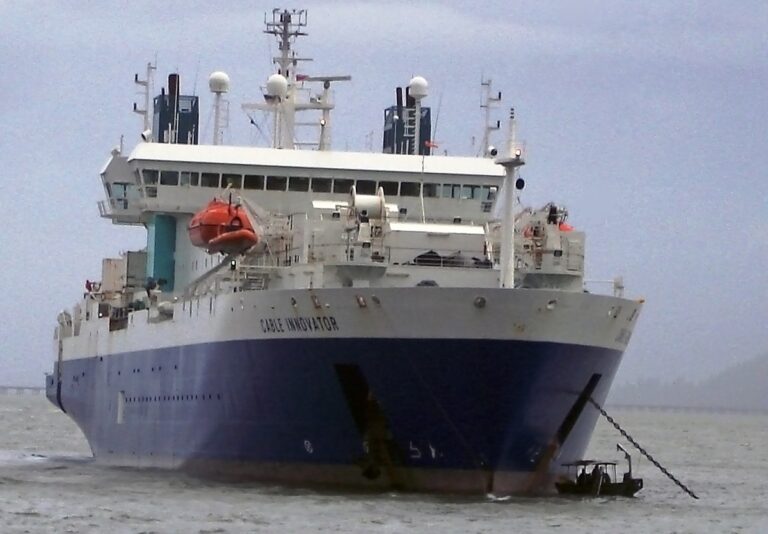U.S. officials are concerned that undersea communications cables, through which 95% of the world’s online traffic flows, are under threat in the Asia-Pacific region.
The Biden administration has reportedly warned major Silicon Valley companies investing in undersea cables, including Meta and Google, about the potential threat from Chinese cable repair ships.
These fears were first reported wall street journalhas emerged against the backdrop of U.S.-China tensions across a number of areas, including information technology, and Washington has been successful in limiting China’s involvement in international undersea cables that connect to U.S. territory.
The Chinese Communist Party’s influence on companies
Chinese companies are required by law to hand over data to the Chinese Communist Party government upon request. That has raised concerns about spying and data collection in the U.S. and many other countries, which led Congress to pass a law last month that would ban TikTok unless its Chinese parent company ByteDance sells it.
The United States has introduced restrictions on Chinese telecommunications operations in the country, citing national security concerns, but cable-laying ships from China and other countries have no access to fiber-optic cables essential to modern communications. has not been checked.
“Think of being able to identify relevant needles in a digital ‘haystack’ to categorize data and decode it if necessary,” Lane Burdett, an analyst at communications market research firm Telegeography, said in 2021. “Cable eavesdropping could yield enormous intelligence gains.”
U.S. authorities are particularly concerned about ships belonging to Shanghai-based Submarine Systems (SBSS), part of a three-company alliance that maintains cables across Asia.
“Running in the Dark”
Vessel tracking data shows that over the past five years, SBSS vessels have regularly switched off their Automatic Identification Systems – the location transponders that the United Nations maritime safety regulator requires ships to use – so that they are unable to operate at one time while underway. It remained undetected for several days. Ocean.
This does not mean the vessel is hacking underwater cables, but “repeated occurrences of this raise suspicions, especially when sailing near strategically important cables.” “The Journal quoted an anonymous official as saying. .
A person familiar with the company told the news agency that poor satellite broadcasting may explain why the ship sometimes goes “dark.”

Wikimedia Commons
“For a ship of that size, there’s no obvious reason why the necessary safety equipment would be turned off,” said Ray Powell, director of the Stanford University Sealight Initiative, which tracks Chinese coast guard and militia vessels. That’s what it is,” he said.in the South China Sea newsweek.
“This is particularly worrying given that the vessel appears to be operating in a busy shipping lane,” he said.
newsweek SBSS, the US State Department and the Chinese Embassy in the US have been contacted for comment.
According to Reuters, the United States has succeeded in at least six cases in recent years in efforts to exclude Chinese companies from contracts to install new cables or to block major international cables from being extended into China. did.
“As the strategic importance of cable networks grows, state actors can choose when, where and how to lay cables, enabling data interception and technology-dependent development across other countries’ borders. “Authoritarian control over businesses raises geopolitical concerns,” the US said. The Naval Research Institute wrote in an analysis last year:
rare knowledge
Newsweek is committed to challenging conventional wisdom, finding common ground and finding connections.
Newsweek is committed to challenging conventional wisdom, seeking common ground and finding connections.

